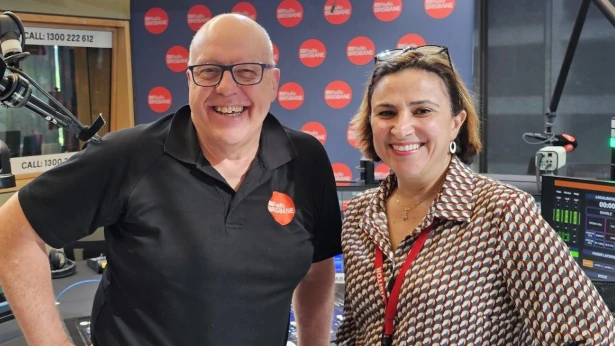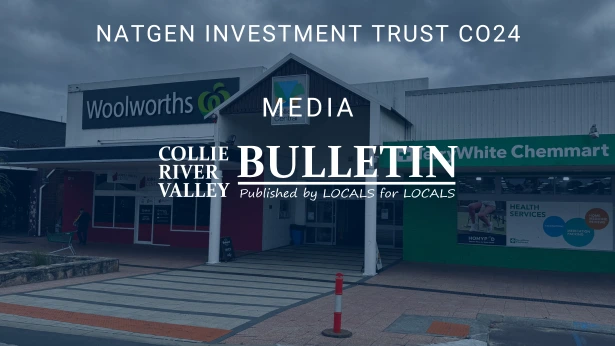Natgen exists to provide our clients with well-considered, risk-managed investment opportunities and quality strategic advice. We base our decision-making, advice and investment offers on careful measurement and analysis, and combine this with our management experience to arrive at quality solutions.
1,400+ followers
Peta brings over 25 years’ financial service experience gained in funds management, and wealth management. As a top performing fund manager, Peta managed institutional cash and fixed income portfolios (in excess of $5b) for Suncorp Investments, and as an Executive Leader, led ASX listed Cromwell Property Group’s Retail Funds Management business. At Natgen, Peta provides our funds management business with further depth and leads the development of new Natgen investments for the benefit of our Unitholders.
Steve has had a varied career at the ABC from researcher for 7.30 Report to producing Stateline, as well as ABC Radio news and presenting the Queensland Statewide Evenings radio program.Steve’s love of Brisbane and passion for fighting the good fight ensures lively and informative conversation every morning on ABC Brisbane.
If you are wondering about what would appear to be almost optimism as a result in the aftermath
of the inflation data released yesterday, you’re not alone.
Many economists are going, well, yes, inflation has slowed reasonably.
That’s good news.
The Federal Treasury, Jim Chalmers, is right.
That’s good news.
Although many are questioning whether it’s under control.
The Reserve Bank will deliver its next interest rate decision on Tuesday, February 18.
And financial markets are apparently pricing in a more than 90% chance of a rate cut.
Now, if you hold a mortgage, that’s probably good news for you.
Let’s see what the RBA does next month.
However, if you’re living and you have to eat, pay insurance, pay rent, the situation
is actually not easing.
The data doesn’t reveal the real story.
As to why, let’s go to Peta Tilse.
Peta Tilse is a mother of three hungry boys and an economist.
And I spoke to her this morning about how she sees the latest inflation data.
So as we’ve all heard, the trimmed mean is 3.2%, which is great because it’s almost in
the 2% to 3% band that the Reserve Bank looks at.
And remember, the trimmed mean just shaves off the very volatile items on the side.
So we’re just looking at the sort of key stuff in the middle.
Having said all of that, when we look at what within the data were the biggest movers, and
I actually looked at it from the perspective of over the last 12 months, electricity prices
are down almost 10% over the last 12 months, which you would expect given all of those
rebates, right?
But without the rebates.
They are artificially brought down by the federal and the state rebates.
Correct.
And they’re not lasting.
So that was just that period of time.
So without those rebates, that number would have actually been positive 0.2% so up.
And then in terms of fuel, which was the other good one, that was down 2%.
That sure, that is what it is.
And that’s a good thing.
But that’s probably a bit of Trump blustering as well in terms of trying to get the fuel
price a bit lower to start Russia of money.
So that’s a whole other story.
And then if we have a look at other things, well, we all need insurance for our houses
and so forth.
Well, that’s up 5% over the year.
Fruit and vegetable prices up 7% over the year.
Rent up 6% over the year.
So it’s, you know, what’s actually happened is something you might have paid $100 for
a year ago is now $107 if it’s fruit and veg, for instance.
So that’s what’s happened.
Okay.
Now, I just thought it was interesting.
So I was curious before all of this, what prices of some everyday items that we might
have in our shelves at home.
I need to say at this point, Peta, it tells us that one of the reasons why I like speaking
with you is not only are you an economist, but you’re also the mother of three boys.
So you like myself and my listeners, you go to the supermarket and you shop yourself to
feed your family.
And that’s the reality check right there.
Absolutely.
So let’s, let’s, let, I did a bit of digging.
I found an old press release from Coles, one of the major supermarkets, and they were talking
about their prices are down campaign, which we’ll remember.
So they listed a bunch of everyday items that they were very proudly showing that they’re
going to keep at a low price.
This is back in September, 2020.
So the biggest mover I found was Moro Olive Oil.
It was $12 then.
Today it is $27 and on sale it is $19.
So the exact same like no shrink flation, that’s the price.
And so the percentage difference is 125%.
On sale it’s 58%.
So it’s nowhere near this trimmed mean of 3% right.
And then fab laundry powder, same kind of thing, $7 then $9 now.
So that’s 29% difference.
So an Nescafe, if you drink coffee, $10.75 to $14.50 now.
So that’s 35%.
So this is, this is the issue.
We used to pay nearly 35% less for certain items and we’re not.
And they’re going up incrementally and that’s what’s hitting the household budget.
What does this reveal, Peta?
Because at the moment, the sort of the economic commentary is that this is wonderful news
as a result of the inflation rate release yesterday.
It means that, you know, there’s a chance, there’s a chance of a rate cut in February
for mortgage owners.
But it’s sort of not really addressing what people are actually losing out of their
wallet on a weekly basis when they get food.
So what’s going on here?
Well, I think at the end of the day, look, we know that the politicians do what they
can and it is about with their iron the main prize, which is getting reelected.
And we did get those electricity rebates, which has helped bring down this particular
number that the Reserve Bank looks at.
But it’s temporary.
That’s correct.
And the everyday costs are still there.
Like we still will need insurance, fruit and veg, rent, the, you know, the big items
that have, like they’re slowing, like they’re slowing in terms of the price rises.
But, you know, it’s still elevated.
And it’s, like I said, those numbers keep growing off a higher base.
So it’s productivity.
It’s having cheaper access to energy to produce things.
It’s, it’s all of those things.
Jim Chalmers, the Australian Treasurer, says he’s confident that inflation is under control.
Do you agree?
I think, well, look, I think it’s better.
But I wouldn’t say it’s totally under control.
I think there’s a few, like I said, a bit of smoke and mirrors at play.
But if that’s what you have to do to get it down, sure.
But don’t forget, we don’t have a lot of slack in our economy.
And I mean, in terms of the employment situation, we’ve got an unemployment rate of 4%.
That is considered full employment.
Yeah.
So if we do cut rates, that’s going to be stimulatory.
That’s going to be positive for the economy.
That’s going to speed things up a little, which might mean you go to the shops a bit more or go out to dinner or whatever.
And that means that that business might hire another person.
But they’re trying to hire another person, which means prices of wages might go up.
You know, so it’s, it’s, it’s a, it’s a balancing act.
It’s, it’s, yeah, it’s difficult.
And there’s still a large amount of federal money going into the economy, particularly in the sort of the government sector with NDIS jobs and the like.
I think nearly half, well, nearly 500,000 people associated with the NDIS alone at the moment, all federal money, that that’s very stimulatory.
And perhaps some are arguing it’s distorting the economy.
That’s right.
And a lot of that, we saw that in the GDP numbers, the growth numbers.
Oh gosh, back in last month, how I think the, the rate was 0.8% was the annual growth rate, which is very slow, which is possibly a good thing.
But you would expect that unemployment would, would loosen up, so to speak, and move from that 4% rate to a bit higher, but it hasn’t.
So that’s where exactly what you said, like the government spending has actually sort of gobbled up some of these people and taken them out of what could have been other jobs or reduced a bit of slack in the economy.
I’ll let you go and plan for your shopping for the weekend as you feel the pain of, of the real
inflation. Peta Tilse, thanks very much for your time.
Pleasure, Steve.
Peta Tilse, she’s an economist as well as a mother of three hungry boys.

















New $100m self-storage facility opens on former Molendinar factory site The Gold Coast’s shrinking living...
Keeping store and order A $100m self-storage centre has replaced the former site of a...
Central celebrates 20 years Collie Central Shopping Centre recently marked a milestone in receiving a...
New $100m self-storage facility opens on former Molendinar factory site The Gold Coast’s shrinking living...








1,600+ followers